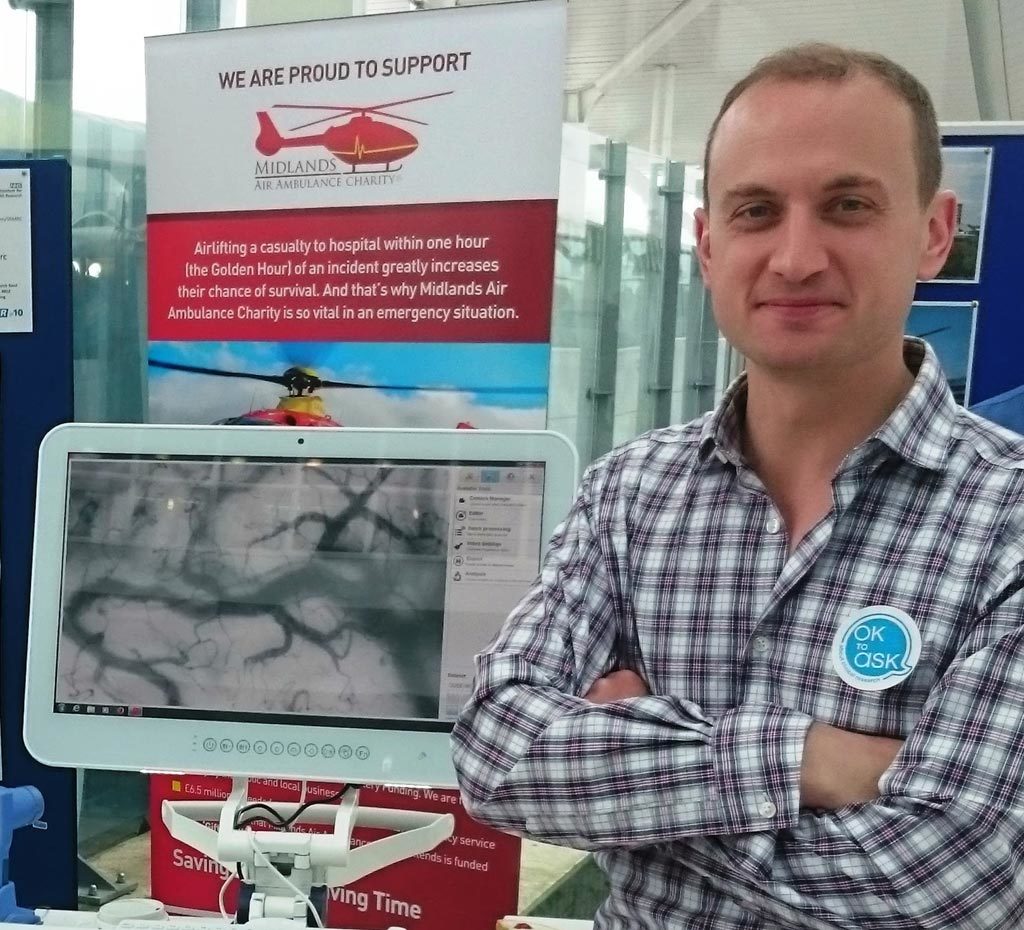
Major David Naumann

Major David Naumann

Major David Naumann
Major Naumann recently undertook his viva voce, which involved lengthy questioning about his research so far. Major Naumann explains below what his research involves, and the benefits this could have for trauma patients.
What is your PhD focused on?
My research investigated the behaviour of the tiniest blood vessels in the body (the microcirculation), responsible for providing oxygen to organs in our bodies. I was primarily interested in how the microcirculation reacts in patients with major injuries, and those who are bleeding. Understanding a bit more about the microcirculation in these critically injured patients may enable us to design more accurate and more precisely targeted treatments.
What have been the main challenges of your PhD?
One of the challenges of my research was that the patients that I wanted to include could arrive at any time, day or night, and I had to see them very soon after they arrived in hospital. That made my research quite unpredictable and tricky at times! Car accidents were the main cause of injury for many of these patients, and of course, these incidents cannot be predicted at the start of any working day. It was also a bit of a challenge to stand back and not interfere with clinical management of the patients, as I was seeing them for research purposes only. As a doctor with an interest in trauma, that was difficult, but I knew that these patients were in good hands with their clinical team.
What will change for you as a result of doing your PhD?
I am currently training to be a surgeon, and having some research experience may enable me to have a better understanding of how to design and implement studies alongside my clinical work, and to teach and mentor others that wish to do so too. I believe that this kind of approach is beneficial to patients because it facilitates a working environment that aims for improvements in both care and outcomes.
Why did you choose to do a PhD in your area?
I’m a military doctor (in the British Army), and therefore am interested in the care of injured patients. We have made great improvements in the care of combat casualties over the last decade or so in the Iraq and Afghanistan conflicts, but are always striving for better, through innovation and improvements wherever possible. Gaining insights into the way the blood vessels in our bodies behave after an injury is of great interest to me, and I feel passionate about learning and asking questions in this area so that we might one day have even more effective treatments.
What do you feel the main benefits (for those undertaking it, and patients) are of undertaking a research-based PhD?
Doing full-time research for a PhD enables you to ask more detailed and difficult questions than might be possible in between clinical commitments or as an extracurricular activity. It also helps the researcher gain a very deep understanding of a topic so that novel discoveries might be made, and new challenges addressed. Research is beneficial to patients because it may facilitate the advancement of clinical care based on scientific evidence. I think all healthcare staff should be aiming to ask these kinds of questions, but having the capacity to do it full time as part of a PhD programme makes it a lot more feasible!
Would you recommend others to do a PhD, and if so why?
I would recommend a PhD to anyone that has a passion for asking questions and designing ways to answer them. I’ve enjoyed taking time out of my clinical career to do full-time research because it’s allowed me to do just that. It’s not for everyone and can be challenging, but it’s also full of unexpected twists and turns. It’s also a fantastic opportunity to learn, develop, and add evidence to the scientific world for the benefit of patients!